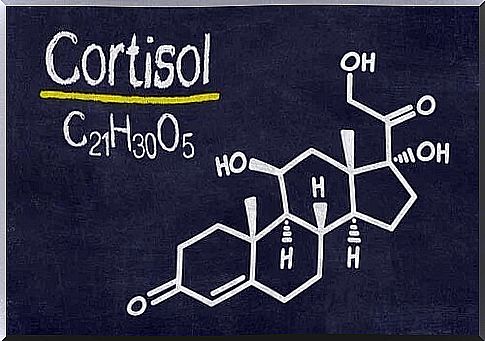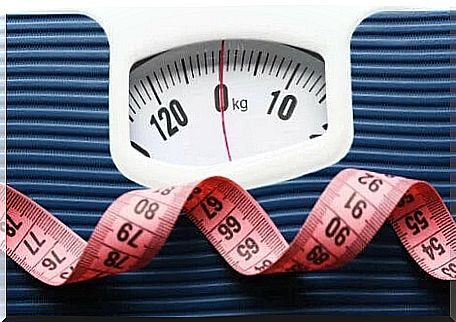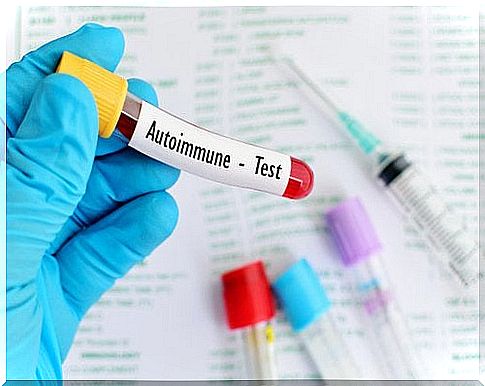6 Signs Of High Cortisol In Your Body

Cortisol, or hydrocortisone, is a hormone produced by the adrenal gland. It serves to increase the level of sugar in the blood and has the inconvenience of decreasing bone formation and causing some problems, such as being overweight.
When cortisol rises, this condition is known as “hypercortisolism” or Cushing’s Syndrome. This disease causes the concentration of fat, and increased levels of blood pressure and body stress.
Signs of high cortisol in the body
While they don’t happen in all cases, there are some signs that may indicate that something isn’t right with your body and that perhaps you may have high cortisol. Do you want to know what they are? Come on!
1. Sudden weight gain

Weight gain is one of the first symptoms of excess cortisol. This is especially visible on the upper body because fat starts to accumulate in places like the shoulders, chest and back.
The strangest thing about the situation is that the person’s arms and legs remain thin.
There are studies showing that high cortisol reduces blood flow and glucose supply to the brain. This interferes with the ability of brain cells to absorb glucose and can even go so far as to allow some cells to die.
Interestingly, in a study titled: “Fructose-Induced Inflammation and Increased Cortisol: A New Mechanism of How Sugar Induces Visceral Fat” it was observed that fructose in the brain stimulates increased cortisol release, which could lead to general insulin resistance and weight gain.
2. Skin symptoms
The skin is also affected by hypercortisolism or Cushing’s syndrome. Therefore, the person can present:
- Acne.
- Bruises.
- Increased facial and body hair.
- Purple lesions on breasts, abdomen and thighs.
3. Muscle and bone symptoms
High levels of cortisol also affect muscles and bones. In short, the bone structure weakens, increasing the risk of fractures, especially in the ribs and spine. Along with this, there is also the risk that the patient will easily have muscle tears and related injuries.
4. Deficiency in the immune system

The thymus, a gland that regulates the human immune system, is affected by cortisol. This hormone can cause cell death and cause the immune system to attack body tissues instead of viruses.
- The most common symptoms of a failure in this system are asthma and allergies.
- However, the problem can become even more serious: it can cause lupus, Crohn’s disease and fibromyalgia.
5. Mood change and mood disorders
Anxiety is one of the most common symptoms that can appear when someone is subjected to high levels of stress. It is accompanied by sudden changes in mood throughout the day, and, in some cases, there is severe depression.
6. Fatigue and insomnia
Dr. Hernando Pérez Díaz, coordinator of the Study Group on Wake and Sleep Disorders at the Spanish Society of Neurology (SEN), explains the following in relation to sleep and hormonal activity:
The energy offered by cortisol can be counterproductive to the body. Being excessively active during the day, the body does not rest. During the night, the excess of hormones does not allow the patient to go into a state of rest and, therefore, insomnia appears.
- Under normal conditions, a person has cortisol spikes around eight in the morning to keep himself energized.
- On the other hand, with active hypercortisolism, the opposite happens: the hormone is activated during the night and, in the morning, the person is exhausted.
How to balance cortisol in the body?
Here are some tips to reduce cortisol levels in the body and lead a healthier life.
try to sleep more
Take care of your sleep, keep to schedules, perform rituals to relax before bed, prepare light dinners and preferably 3 hours before going to bed (at least) and try to do everything possible to rest well every night. Find the ritual you like best and put it into practice.
In addition to lowering cortisol levels in your body, getting a good night’s sleep will allow you to look younger and healthier.
Keep sugar levels stable
Maintain a balanced diet, rich in nutritious foods and abandon industrial beverages, processed foods, frozen foods and the like. Consume fruits daily, prepare complete meals consisting of carbohydrates, proteins and fiber to keep sugar under control.
It is also advisable to consume foods rich in vitamin B, calcium, magnesium, chromium, zinc, vitamin C and alpha lipoic acid (ALA).
say goodbye to coffee

Caffeine tends to increase the level of cortisol in the blood by at least 30% in an hour. However, the effects, in some cases, can last for 18 hours. If your intention is to lower your catabolic metabolism and increase your anabolic metabolism, don’t drink coffee anymore.
Do exercises
The known benefits of having a regular exercise routine, such as gaining muscle mass and increasing the production of serotonin and dopamine, will make you less at risk of suffering from anxiety and depression. Also, exercise will help prevent cortisol imbalance in your body.
Do you think you have high cortisol? See your doctor
If you think you may be experiencing one or more of the symptoms mentioned above, see your doctor. That way you’ll know if you have normal cortisol levels or not and what you can do about it.
Of course, keep in mind that in addition to following the treatment prescribed by your doctor, you must maintain a healthy and consistent lifestyle, for your health and well-being.









